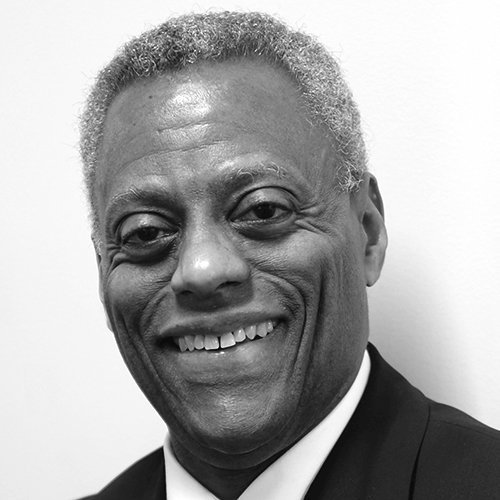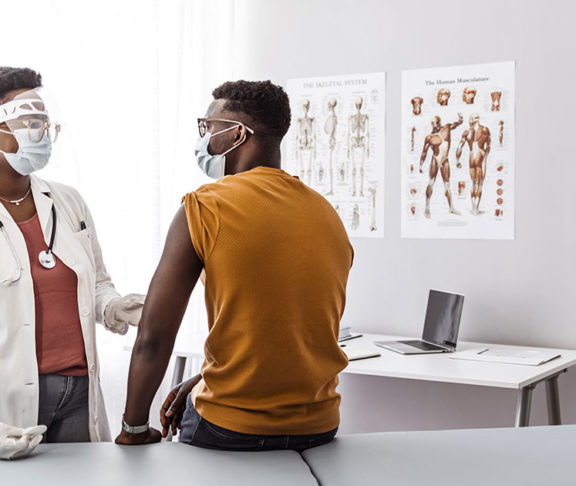The Black community has been devastated by HIV for decades, even if the images burned into our memories from the 1980s are of white gay men.

Jesse Milan Jr.
President and CEO, AIDS United
Did you know Black people account for 42 percent of new HIV diagnoses in the country even though we only make up 14 percent of the U.S. population? Moreover, new HIV diagnoses are increasing in Black folks in the 25-34 age range. And there are thousands living with HIV who don’t even know they have the virus because they’ve not been tested.
It is time, after 40 years of the epidemic, for everyone within the Black community — and for everyone who supports us — to acknowledge that HIV is a serious, current problem for Black people in the United States.
Speaking out
Part of the problem arises from stigma and silence.
I am a Black gay man who has been living with HIV for nearly four decades, and has had the immense privilege of being affirmed in my health and wholeness by parents, siblings, cousins, aunts, uncles, and even my barber. I have only great stories to report; not stories of shame or rejection.
Is that true for you? I know it’s not true for many Black people living with HIV.
As Black families gathered for the holidays, did your daughter, son, mother, father, cousin, niece, nephew, or neighbor know HIV is still a problem? Did you talk to them about HIV and how it impacts our community? Did you open your mind and your heart? Or have you maintained the stigma and silence about HIV in your household?
As we enter 2022, the 41st year of the HIV epidemic, make a New Year’s resolution to talk about HIV. Mention the importance of getting tested. Get tested yourself. Talk about the benefits of PrEP; a medication that prevents HIV.
Let people know that with proper care, HIV can be suppressed, so much so that a person living with HIV can live a long and healthy life. Share that viral suppression isn’t just good for the individual, it’s good for the community, because someone who has reached an undetectable status cannot pass the virus along to anyone. Tell people that undetectable means untransmittable, or U=U.
Black people need to hear and talk about HIV. Indeed, lifesaving HIV treatments and prevention are worth our entire Black community knowing and talking about.
Disparities
But stigma and silence alone cannot account for the outsized impact HIV continues to have on the Black community. Our society has never fully reckoned with the legacy of white supremacy on our people’s health. Indeed, systemic racism significantly contributes to the HIV epidemic.
It is because of racism that so many of our Black siblings lack access to consistent, quality, trauma-informed healthcare. That leads to a whole host of negative health outcomes. But it also means not enough of us are getting the prevention, treatment, and care we need.
Breaking down barriers
I am proud to lead an organization working to break down systemic racism. AIDS United works directly with Black communities to build up strategies for creating better health, wellness, and access to care. We have provided millions of dollars in grants and support over the past decade to Black-led, grassroots organizations.
Take action, stay informed on important issues and get the tools you need to be an HIV Advocate.
We also work with organizations to help them build trust with Black communities. We regularly train public health practitioners on cultural humility, which promotes self-reflection to help them understand their own beliefs as a step toward learning more fully from — and about — others. This is different from cultural competence, which presumes one can have an expertise in someone else’s culture or experience.
I’m also particularly proud of our upcoming Racial Justice Index. The index is a measurement tool that HIV service organizations will be able to use to identify areas of growth in their policies and practices to root out systemic racism. We’re planning workshops and tools to help infuse racial justice into the work of HIV prevention and care.
I have written pieces like this before, but this one is unique. Including HIV in this series on Black health not only affirms Black people living with HIV, but also helps break down stigma and raise awareness of the barriers we face.
We deserve to live our healthiest lives, but we can only end the HIV epidemic by dismantling the racist practices still festering in our systems, and by all of us allied with and in the Black community fighting, learning, and talking about HIV.



